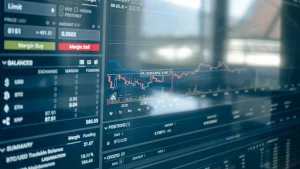In the world of financial markets, traders have multiple options to invest and grow their capital. Two of the most popular instruments are forex and futures. Each has unique characteristics, benefits, and risks that cater to different trading styles. Understanding the differences between them is essential for making informed decisions.

Forex vs. Futures
Forex, or the foreign exchange market, involves trading currencies. Traders aim to profit from the price movements between currency pairs, such as USD/INR or EUR/USD. It operates 24 hours a day, five days a week and allows traders to access it globally at any time. It is known for its high liquidity and leverage options, which makes it attractive to beginners and experienced traders.
Futures trading, on the other hand, involves contracts to buy or sell assets at a specific price on a future date. These assets can include commodities like gold and crude oil, indices, and even currencies. Futures are traded on regulated exchanges, which ensures standardised contracts and transparency. Unlike its counterpart, it requires a deeper understanding of the underlying asset and market conditions.
Key Differences Between the Two
-
Market Hours
- Forex: Operates 24 hours a day during weekdays.
- Futures: Traded during fixed hours.
-
Leverage
- Forex: High leverage allows traders to control larger positions with smaller capital.
- Futures: Leverage is lower but still offers significant exposure.
-
Liquidity
- Forex: High liquidity, especially for major currency pairs.
- Futures: Liquidity varies depending on the traded asset.
-
Risk
- Forex: Price movements can be highly volatile due to global economic factors.
- Futures: Risks include price volatility and margin requirements tied to contract sizes.
How to Choose?
- Trading style: If you prefer short-term trades with high liquidity, forex may suit you. Futures are ideal for those interested in hedging or holding longer-term positions.
- Capital availability: Foreign exchange allows smaller capital requirements due to high leverage. Its counterpart may require larger initial investments for contract trading.
- Market knowledge: Forex traders focus on economic news, interest rates, and global events. Futures traders need a strong understanding of the underlying assets.
- Risk tolerance: Traders comfortable with volatility might prefer forex, while those seeking structured contracts may lean towards futures.
How to Select the Right Option
Both offer unique opportunities for traders, depending on their goals and risk appetite. While forex provides flexibility and high liquidity, futures trading offers standardised contracts and transparency.
Understanding the differences and assessing your preferences helps you choose the option that aligns with your strategy. Exploring both markets can help you diversify, manage risks, and make the most of financial opportunities.


